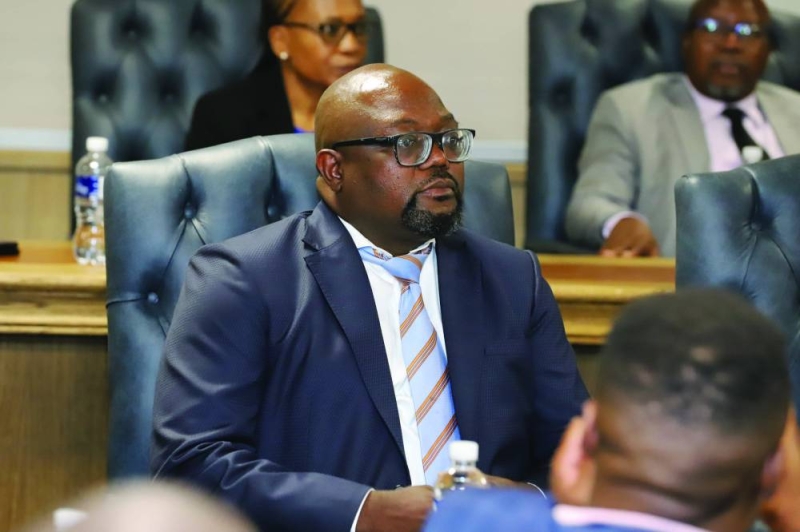Gov’t to decrease politicians in ambassadorial appointments
Spira Tlhankane | Monday March 24, 2025 13:47


The past regime before it was removed in last year’s General Election had allocated 75% of ambassadorial appointments to political appointees who are not career diplomats. Minister of Foreign Affairs, Phenyo Butale said they have realized that it is essential to conduct a comprehensive review of the impact of political appointments on the Foreign Service. “While some political appointments can introduce valuable dynamism and expertise, the current situation, characterized by a disproportionate number of political appointees in the Foreign Service, presents significant challenges. Such practices can undermine the effective execution of the ministry's mandate and adversely affect staff morale, especially as many career diplomats aspire to become Heads of Mission,” Butale told Parliament recently. To address these concerns, the Gaborone Central legislator indicated that they must establish clear guidelines and criteria for future appointments, ensuring that all selections align with the Ministry's objectives and enhance their operational effectiveness. “Additionally, we should implement professional development and training programs tailored to the needs of our diplomatic staff.
These initiatives will empower our personnel and strengthen the overall capabilities of the Ministry,” he said. Butale also pointed out that they had become aware that several career diplomats were transferred from the Ministry under circumstances that remain unclear and unconvincing. “This lack of transparency raises concerns about the rationale behind these decisions. It is essential for the integrity of our diplomatic operations that such actions are based on sound reasoning and align with the public interest, rather than emerging from ambiguity or uncertainty,” he said.
Butale said the redeployment of the experienced career diplomats back to the ministry is not merely a logistical necessity, but it is a strategic imperative essential for bolstering the ministry's capacity to engage effectively in international relations during these early days of their administration. “Their experience and institutional knowledge are valuable assets that can strengthen our diplomatic efforts and enhance our ability to fulfill our national interests on the global stage. The return of these experienced career diplomats will not only contribute to building a cohesive and collaborative team environment but will also help bridge the gap between varying levels of experience and expertise within the staff. This integration promotes a culture of learning that enhances overall effectiveness,” he emphasised. Responding to Butale, Maun North legislator, Dumelang Saleshando said he was happy that the government is increasing the prospects for upward mobility of professional diplomats. He said the focus will finally be on career diplomats rather than political appointees. “We used to have a situation where out of 20 ambassadors, five are career diplomats. It’s important to have political appointees here and there but the way they dominated the Foreign Service was worrying. Please adopt a policy which can determine the ratio,” he said.
In late 2023 government revealed that there were 20 Ambassadors/High Commissioners appointed in their substantive posts with 15 as political appointees and five as career diplomats, appointed from within the ministry. Saleshando said in the past regime, foreign deployment was used as punishment and to thwart some people from occupying certain top positions. He gave an example of how Okavango West MP Kenny Kapinga was deployed to serve as a High Commissioner in Zimbabwe when he was supposed to be promoted to become Police Commissioner. “This was used to frustrate people who did not want to work outside Botswana. If you are deployed as punishment even if you love your country or possess the right skills for the job you cannot do the job wholeheartedly,” he said.
In 2022 during the Presidential Commission of Inquiry into the Review of the Constitution, submissions were made that besides MPs and councillors, career diplomats with requisite skills were being overlooked in favour of other people, especially those who lost elections. In 2020, former Cabinet minister Dorcas Makgato, who lost the Sefhare-Ramokgonami constituency to Dr Kesitegile Gobotswang in the 2019 General Election, bounced back after being appointed High Commissioner to Australia. Still, in 2020, former Botswana Movement for Democracy (BMD) secretary-general, Gilbert Mangole was appointed High Commissioner of Botswana to India. That same year, after serving as Specially Elected MP from 2014-2019, Kitso Mokaila was rewarded with a position as the Botswana Ambassador to the United States of America.
Last year there was a bolt-out-of-the-blue appointment when then Specially Elected Member of Parliament (SEMP) Philda Kereng was appointed Botswana High Commissioner to Nigeria. The appointment sparked mixed reactions with some allegations that then-President Mokgweetsi Masisi was punishing her for allegedly meeting with nemesis former President Ian Khama. Last year in June Masisi also appointed former Member of Parliament (MP) for Mahalapye East Yandani Boko as the new envoy of Botswana to South Africa (SA). This was after Boko had resigned from Parliament on the eve of the General Election.
